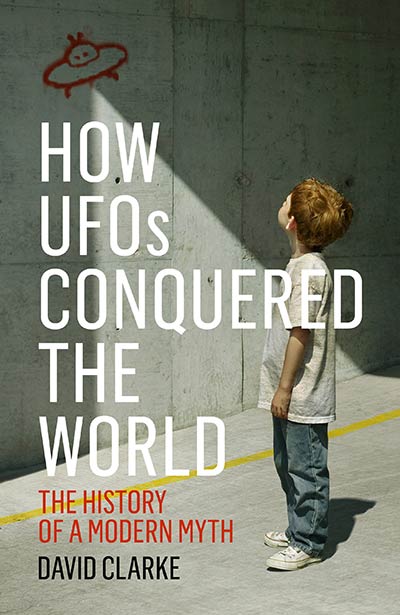David Clarke has written an insightful, informative and thought-provoking book on UFOs and the UFO culture. This is not a debunking book, although it fulfills that function admirably. Rather, it describes Clarke’s long search for what is really going on with UFO reports. Along the way Clarke goes through various stages of what he calls the “UFO Syndrome”.
 Clarke is both British and a reporter. In the latter role, he interviewed many of the major players in the British UFO community. These interviews and his own investigations provide much information that, as far as I know, has never been published before. For readers familiar with the American literature on UFOs, this book provides a very welcome broadening of horizons. I had no idea that there was a British equivalent of Project Blue Book, for example. The honesty with which Clarke describes his own changing beliefs is most refreshing. He is never harsh or demeaning of beliefs he does not hold. He treats those who hold even very bizarre beliefs regarding UFOs with interest and respect.
Clarke is both British and a reporter. In the latter role, he interviewed many of the major players in the British UFO community. These interviews and his own investigations provide much information that, as far as I know, has never been published before. For readers familiar with the American literature on UFOs, this book provides a very welcome broadening of horizons. I had no idea that there was a British equivalent of Project Blue Book, for example. The honesty with which Clarke describes his own changing beliefs is most refreshing. He is never harsh or demeaning of beliefs he does not hold. He treats those who hold even very bizarre beliefs regarding UFOs with interest and respect.
Like this reviewer, Clarke’s interest in UFOs sprang from reading science fiction stories and seeing science fiction films and TV shows during adolescence. We both read various UFO books and joined a UFO group (NICAP in my case) and came to really believe that UFOs were of extraterrestrial origin, the start of the “UFO Syndrome”. In the introduction Clarke describes in detail his captivation with the syndrome. In the following ten chapters, he writes about his pursuit of the “truth” about UFOs. It is a fascinating journey.
The first two chapters cover topics that will be familiar to the skeptical reader. After describing the Arnold sightings and several 1950’s “flaps” and the huge interest they generated in the United States during the later 1940s into the 1950s, he notes that “the [UFO] syndrome took hold in no less dramatic fashion” (p. 38) in the United Kingdom. It is here that Clarke also describes the important connection between the UFO syndrome and the fantasy and science fiction pulp magazines of the 1930s through the 1950s. This connection has been discussed at length in Andrew May’s excellent Pseudoscience and Science Fiction (Springer, 2017). […]
No comments:
Post a Comment